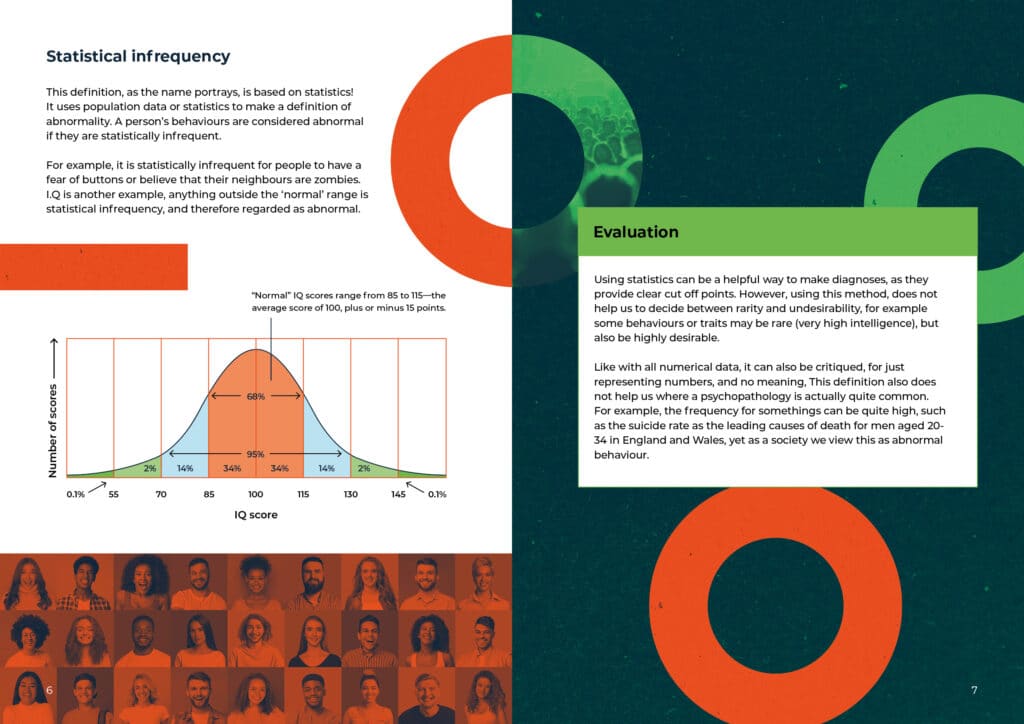A-level Biology
You’ll open the door to plenty of careers
A complex yet fascinating subject, biology is the study of life itself, with all its complexities. Whether you fancy becoming a scientist to help create the next breakthrough vaccine or working with exotic animals in far-flung corners of the world, A-level biology can set you on the path to many exciting and fulfilling careers. And biology isn’t just for those pursuing a STEM career; it can also be essential for anyone considering working in the emergency services, within sports and fitness, or even agriculture. In short, if you’re not quite sure what you’d like to do in the future, but you’d like to keep a lot of options open, A-level biology is a sound choice.
You’ll study the latest specification, brought to life by experts

Here at Oxbridge, we follow the AQA syllabus, chosen because it’s best suited to online learning. All of our course material is written by subject experts, who have worked in education for many years and have a wealth of experience. James Oliver, our biology course writer and subject tutor, explains his passion for online learning with us;
“It’s a really individualised, tailored approach that can be moulded, whereas traditional education settings deliver in a more general way that doesn’t always suit all learning styles.”
Due to the fact that all of our course writers and subject tutors have worked with students inside the classroom, they know what works and what doesn’t, and they understand how to truly bring a subject to life.
You’ll examine the underpinnings of life itself
So, what will you learn in our A-level biology course? You’ll start off by exploring biological molecules such as monomers and polymers, which form part of the biological basis for all living things. You’ll study cell structure and cell theory, a unifying concept in biology, comparing and contrasting plant and animal cells. You’ll move on to the fascinating topic of genetics, taking a deep dive into the science of DNA, chromosomes, and exactly how our genetic makeup affects each and every one of us.
You’ll study genetic variation throughout different populations and ecosystems, the factors that can impact gene expression, and the fascinating topic of DNA technology in the diagnosis and treatment of human disease. Plenty to get your teeth into, we think you’ll agree!
A-level Maths
You’ll learn to love numbers
We’ll be honest with you – despite the fact that it’s the most popular A-level subject in the UK, not everyone finds maths easy. However, with the right support and learning materials, we truly believe that anyone can thoroughly enjoy the subject. Our curriculum manager explains, “Like English, maths is a fundamental life skill. Most people don’t like it (or, they think they don’t!) because they’ve been told that it’s boring, or they’ve been taught the wrong way. Our resources help to bring the subject to life. Dare I say, we make maths fun!”

You’ll learn transferable skills
Similarly to biology, A-level maths shouldn’t just be an option if you’re headed for a STEM career, because in reality, almost every profession you could hope to enter will prize the skills that you’ll learn along the way on this course. For instance, taking a complex problem and breaking it down into bitesize chunks is an invaluable skill in almost any job, along with advanced numeracy skills.
You’ll study fascinating and varied mathematical topics
If you study with us, you’ll follow the AQA A-level maths syllabus, which is a mixture of pure maths, mechanics, and statistics. In the ‘pure mathematics’ section, you’ll look at how to use techniques such as deduction and exhaustion to prove a mathematical idea, learn how to interpret mathematical models, and gain an expert understanding of concepts such as trigonometry and binomial expansion.
During the ‘mechanics’ section, you’ll move on to vectors and kinematics, forces, and Newton’s laws. With statistics, you’ll be taking a deep dive into population and sampling, dispersion, elemental probability, and much more! If you think that all sounds a bit tricky – we get it. That’s why we’ve packed our course materials with worked examples, video summaries, and plenty of practice questions to test your knowledge. And of course, if you get stuck, your tutor will be there to help.
A-level Psychology
You’ll learn to understand people
“Psychology is an underlying theme in everything. When I was doing my A-levels, the poster in our classroom said ‘psychology is life, life is psychology’”, said our A-level psychology tutor, Gemma Lyons, when we asked her opinion on why this subject is so popular. Gemma makes a good point; behind every human interaction you’ll ever have, positive or negative, the science of psychology is at play.
It’ll set you up for just about any career
Why is psychology an A-level that employers love to see? Because it teaches so many different skills, such as scientific research, critical thinking, analysis, and communication. Not to mention, understanding how people tick can seriously improve your teamwork and leadership skills. Of course, if you’ve got a real passion for the subject, then this A-level will likely be a stepping stone towards a psychology degree, after which you might choose to work as a psychologist or psychotherapist. However, the skills you’ll learn will be invaluable for a huge number of careers, including social care, business, education, or journalism!

It’ll complement any other subjects you study
Is psychology an art or a science? There’s some debate. Although there are branches of psychology which focus on rigorous scientific experimentation and research, applying theories and techniques to real-life situations requires professional judgement and intuition, which is an art form. And when you study psychology, you’ll practise a broad range of skills, from essay writing to maths, to scientific research. It’s therefore a nice balance between ‘soft’ and ‘hard’ subjects, meaning it complements almost every other A-level.
It’s downright fascinating!
What will you learn when you study our AQA psychology A-level? You’ll begin by examining social influence, and why we think and behave the way we do. You’ll move on to the topic of memory, questioning whether our recollection is always trustworthy. Next, you’ll look at childhood attachment and how our formative experiences can impact our adult life and relationships, along with psychological research methods and processes.
Throughout the remainder of the modules, you’ll focus on issues and debates in psychology, such as nature vs nature, as well as fascinating topics such as forensic psychology, where you’ll examine the merits of investigative psychology and cognitive explanations for criminal behaviour.

…and don’t forget, no matter what you study, you’ll get plenty of support!
Because we understand that everyone learns in different ways, many of our modules include links to engaging interactive content like quizzes, as well as videos and PDFs. And if there’s something you don’t understand, just ask your tutor – that’s what they’re there for! And, as our biology tutor James Oliver explains, sometimes all it takes is a different perspective: “When a student is struggling, I get back to basics. I like to use handwritten or hand drawn worked examples or diagrams so that they can break down a larger problem into smaller steps. Learning is a very visual hands-on process, and SEEING something in action really helps.”
Find out more about our wide range of GCSE and A-level courses on our website, or you can give our friendly learning advisers a call via 0121 630 3000.
